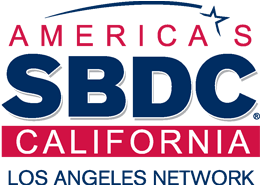Small-business owners saw many changes to tax law in 2009. If you bought business property or equipment, dealt with cancelled business debt or provided COBRA assistance to employees, new laws could affect your returns. How to minimize the tax bite? Try these 10 tips (and always talk to your accountant for advice specific to your situation).
- Get professional help. Maybe you can do your taxes yourself—but is it worth your time? By keeping up-to-date on tax law and knowing how to use it to your advantage, a good accountant saves you more than he or she costs.
- Start early. Whether you use an accountant or do it yourself, don’t wait until April 10 to get started—give yourself plenty of time in case last-minute problems arise.
- Get organized. Don’t show up at your accountant’s door with a shoebox full of receipts. Gathering the necessary documentation and organizing it ahead of time makes everyone’s job easier, saving time and money.
- Go to the source. Visit the IRS Tax Season 2010 portal for tips and information on maximizing your tax credits. For changes to state tax laws, find your state Web site here.
- Go ahead, deduct that home office. In the past, many entrepreneurs were afraid a home office deduction would spur an audit. But the IRS has relaxed eligibility rules for this deduction, and if you legitimately qualify, you can take it without fear.
- Fund your retirement account. If you have a traditional or Roth IRA, there’s still time to lessen your taxable 2009 income by contributing to the account before April 15, 2010.
- Don’t forget startup expenses. The costs of launching a business are considered capital expenses, and you can deduct up to $5,000 of them your first year in business—but not until your business is actually open.
- Understand audit risk. The IRS is stepping up enforcement activity, and those who file a Schedule C are particularly at risk. That’s all the more reason to use a professional tax preparer.
- File electronically. The IRS encourages small businesses to e-file. If you expect a refund, e-filing lets you get your money faster. And when you e-file, the IRS checks your return for completeness, minimizing your chance of errors.
- Plan ahead. Proposed federal stimulus actions could mean many more tax breaks for small businesses in 2010. Talk to your accountant about what you can do now to lower next year’s tax bill.
Rieva Lesonsky is founder and President of GrowBiz Media, a content and consulting company that helps entrepreneurs start and grow their businesses. Before launching her business, she was Editorial Director of Entrepreneur Magazine. Follow Rieva on Twitter@Rieva and read more of her insights on SmallBizDaily.com.





